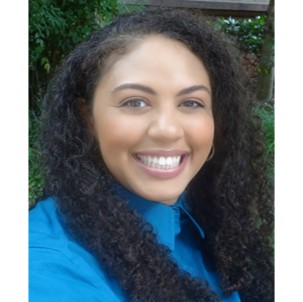By BRiDGE Committee Member Brooke Burrows
All children grow up in our society and impacted by race and discrimination – we are all in this system. Whether or not we talk to some groups of children about race or choose not to is missing the fact that we are all impacted.

For Dr. Fantasy Lozada, Developmental Psychologist and the Director of the S.H.I.E.L.D Lab at the Virginia Commonwealth University, engaging in the research process is inherently linked to the consideration of social realities and working to meet the needs of the broader community. Standing for School, Home, and Internet contexts of EmotionaL Development, the S.H.I.E.L.D Lab recognizes that to understand children’s emotional development, particularly for children who are ethnic-racial minorities, it is critical to consider the contexts that can contribute to positive outcomes and help youth develop critical social, emotional and coping skills. The Lab’s primary line of research investigates the ways that racial-ethnic experiences across contexts are related to youth’s emotional development, investigations that are rooted in community change and partnership.
Dr. Lozada spoke to the UMass Psychological and Brain Sciences Department to provide specific examples and advice for how to conduct research from within a framework of community partnership at all levels – from the early stages of project development all the way to dissemination of findings in creative and accessible formats.
1. Bringing Awareness to Researcher Motivation and Identity
Before reaching out for research-community partnerships, Dr. Lozada emphasized the importance of recognizing and acknowledging research goals, prior researcher experience with the topic, and the underlying motivations for the work.
One S.H.I.E.L.D partnership with Birth in Color, a birth, policy, and advocacy collective focused on providing culturally-centered support to pregnant families and the birth community, originated in Dr. Lozada’s own search for resources around the birthing process while pregnant with her first child. With a mutual understanding of the importance of confronting the disparities of maternal and fetal mortality for women of color, she was able to develop trainings and a research program based on several key questions: What is the role of emotional competence in providing effective support to a Black expecting mother? What is the role of emotion in the birthing process in labor and delivery outcomes?
2. Creating Accountable Relations and Stakeholdership
Beyond finding core commonalities to base community partnerships on, Dr. Lozada emphasized the importance of coming into new community spaces with accountability. For her, it was important to demonstrate a good faith relationship based on exchange and giving back, and not just on coming in to take something one-sidedly from the space.
One way to ensure mutual benefit in community-research partnerships is through the creation of Community Advisory Boards for Research where key community stakeholders take the time to think critically about the research questions, protocols, and how impactful the work is for their communities. For Dr. Lozada, Community Advisory Boards helped provide critical context for the research: “What do these questions mean to the people who would be answering them, and how might they receive some of this measurements and questionnaires? Do our questions truly speak to some of the experiences of the community?”
3. Organic Connectivity of Research and Community Mission
Dr. Lozada’s community partnerships are closely aligned with the research conducted by the S.H.I.E.L.D lab and provide multi-layered opportunities to answer questions, provide trainings, and develop shared community events and activities.
While working with the Village of Wisdom, a program in Durham with the mission of closing the academic opportunity gap by protecting the intellectual curiosity and positive racial self-concept of Black children through the love and wisdom of their families and communities, the S.H.I.E.L.D Lab was able to not only provide assessment and evaluation support but also support grant writing initiatives.
For another research practice partnership that worked closely with thirty teachers to develop culturally responsive teaching habits, the Lab was able to weave together intensive summer workshops, several research cycles, a video reflection process for each teacher, and an end-of year event. With closely overlapping purposes and mutually beneficial activities, these community partnerships gained longevity and sustainability.
4. Accessibility of Information
While the wheels of research may never truly stop turning, taking the time to provide research findings in a clear and digestible way to those who are most impacted by the findings was another critical task for Dr. Lozada. Beyond the academic publication process, the S.H.I.E.L.D Lab has turned to drawing comics of the key points of research in creative and engaging panels for youth. The lab also utilizes blogging as a format to start conversations in online spaces with community organizations. Both avenues provide new and innovative ways of reaching back out and making sure communities are informed about issues relevant to their lives.
5. Make it the Everyday – As a Researcher, and as an Institution
Finally, Dr. Lozada highlighted the value of science to all of us, across our everyday lives. More so than just any one research finding, Dr. Lozada emphasized the importance of discussing how science has broadly interfaced with different groups of individuals in the past – for example, the legacies of scientific harm on the African American community. Dr. Lozada asks students and community members to consider: “How does the African American community move forward from this and are there ways to trust science? What advances have been made that benefit our community?”
While individual scientists and researchers can help start these conversations, institutions can provide critical support for uplifting community-based science by demonstrating that community engagement is valued. At the Virginia Commonwealth University, community connections and service are amplified to the same degree as research space, a perspective that for Dr. Lozada, “helps me feel like I am not having to make a choice between research and community connections, but can rather integrate them as the best of both worlds.”